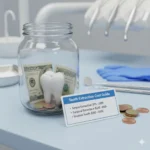Odo Recall Is your weed safe? You rely on the label, right? The state seal. Arizona has rules. But a small fungus almost broke all that trust wide open.
In May 2025, the state health department (ADHS) announced a recall. It was for a cannabis flower: Odo, Batch PHX1164-ODO. Why? Possible Aspergillus mold.
That word, Aspergillus, sounds technical. But it’s mold. Spores float everywhere. Most people are fine. But in something you inhale into your lungs? That’s a big risk.
Here’s the thing: No one got sick—officially. But the recall made people ask tough questions. Is the product really safe? Can we trust the system?
The Recall Nobody Saw Coming
It started quietly. A short notice from the ADHS. Product: Odo. Batch: PHX1164-ODO. Reason: possible mold.
The ADHS called it “voluntary.” They said it was done “out of caution.” No illnesses confirmed. But consumers got a warning: Stop using it. Throw it away.
The lab found mold. The health department told the producer: “Pull it.” The shelves were cleared. Then, silence.
They didn’t name the grower. That’s weird. Recalls usually demand full transparency. But not this time. No one knows who made it. How many jars were sold? Which stores had it? No one is saying. This lack of detail makes people nervous.
The Fungus: What is Aspergillus?
Let’s be clear. Aspergillus is everywhere. Soil. Air. Plants. Most healthy people breathe it. No problem.
But in weed? Big problem. You burn it, you inhale the spores.
If your immune system is weak—from chemo or a serious illness—those spores multiply. It can cause a lung infection called invasive aspergillosis. It can be deadly serious.
How Recalls Work (and Fail) in Arizona
The system looks good on paper. Every batch must be tested. Labs check for mold like Aspergillus. Results go to the ADHS. If there’s a problem, a recall happens. The company must pull products and report back. Neat system.
But it’s messy in real life. Cultivators pay the labs. This creates a conflict of interest. Labs who fail too many products might lose business.
The ADHS is reactive. They wait for problems to be found. They don’t go hunting.
The Odo recall shows this. The mold was already detected before the state stepped in.
The Pattern: Recalls Keep Coming
This wasn’t new. Arizona has seen mold scares before.
Big cannabis recall. In July 2023, the state (ADHS) pulled products from Grow Sciences and Soothing Options. The problem? Aspergillus mold. Throw those batches out.
Later in 2023, Curaleaf recalled some trim, too. Same mold.
Same story, repeated. Mold. Bacteria. Recalls happen after the system fails.
The strangest part? Some recalled products later pass re-tests. Makes you wonder which test to trust.
Lab oversight is shaky. Audits find problems. The system balances safety with profit. Every recall hurts public trust a little more.
People Ask Hard Questions
The silence after the Odo recall is harmful.
Why no producer name? How bad was the mold, really? How many people smoked it already? No answers yet.
This lack of transparency makes consumers angry. It’s their health. Their money. They can’t trace what they bought.
We don’t even know the type of Aspergillus. Some are mild. Some are lethal. Just “possible contamination.” That phrasing worries people.
Arizona’s recall notices usually show lab data. Not this one. Just a notice. That’s odd. If the state hides details, consumers lose faith in the promise of safe weed.
Health Risks: Real Talk
If you are healthy, you will probably be okay. Your lungs can handle some spores. But this is about vulnerable people.
Cancer patients, transplant recipients, people with weak immune systems—even a small amount of mold is dangerous for them. It can start a serious infection.
So the recall is necessary. It’s a safety measure.
But when the public warning lacks detail, fear spreads fast. Some people panic. Others ignore it as hype. Neither helps.
If You Bought It, What to Do
Check your jar. Look for Odo, Batch PHX1164-ODO.
If you have it, do not smoke it. Do not open it.
Seal it up. Throw it away. Follow the ADHS advice.
Tell the dispensary. They might offer a refund.
If you feel sick (cough, fever, chest pain), see a doctor. Tell them you used the recalled cannabis.
Don’t risk your lungs.
What Fixing
Experts agree: Testing is only as strong as the oversight.
Arizona’s market grew too fast. Labs rushed. Standards got sloppy.
Here’s what needs to change:
| Problem | Why It Matters | The Fix |
| No Producer Name | No accountability for safety. | Disclose all names in every recall. |
| Bad Labs | Labs are paid by the growers. | Independent testing and blind re-tests. |
| Hiding Data | Consumers can’t check the risk. | Publish all spore count data openly. |
| Weak Penalties | Companies risk little for errors. | Tougher fines for failed compliance. |
| No Easy Check | Consumers can’t verify the label. | QR codes with verified lab data. |
Export to Sheets
These changes are about trust. People need to believe the label.
Conclusion
The Odo Aspergillus recall is a huge warning. A tiny fungus showed the big cracks in a billion-dollar market.
It was luck no one got hurt this time.
Arizona’s cannabis market can be a great example. It just needs three things: tighter rules from regulators, safer practices from producers, and cleaner work from the labs.
If they don’t fix it, the next time won’t be a “voluntary recall.” It will be a disaster.
FAQs: Quick Facts
Q: What was the Odo recall about? A: Big recall news. In May 2025, the state (ADHS) pulled a cannabis product. It was Odo flower, Batch PHX1164-ODO. Why? Tests showed it might have Aspergillus, a dangerous mold. Get rid of it now.
Q: Was anyone sick? A: No illnesses were officially confirmed.
Q: Why is Aspergillus dangerous? A: You breathe in the spores. They can cause bad lung infections, especially if your immune system is weak.
Q: Why was the company kept secret? A: The ADHS did not name the producer publicly. This is unusual and hurts trust.
Q: What should consumers do with the product? A: Stop using it. Throw the product away safely. Check your health.
Q: Are these recalls common? A: Yes. Arizona has had several recalls since 2023 for mold and bacteria issues.











